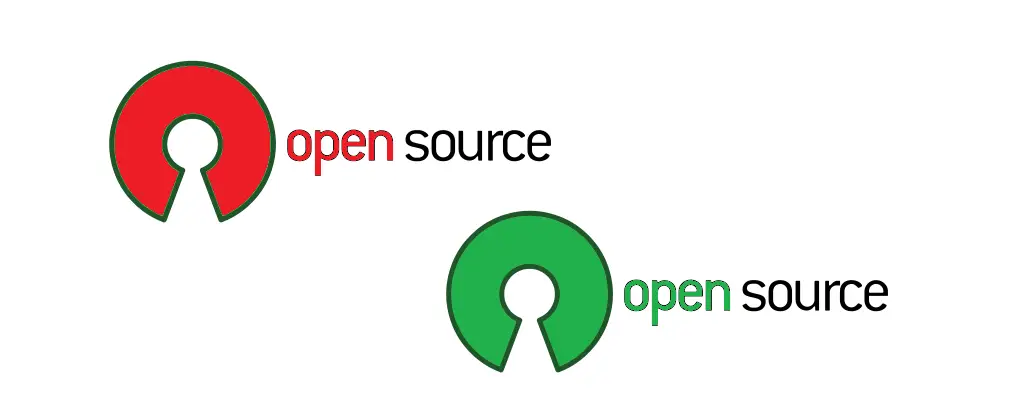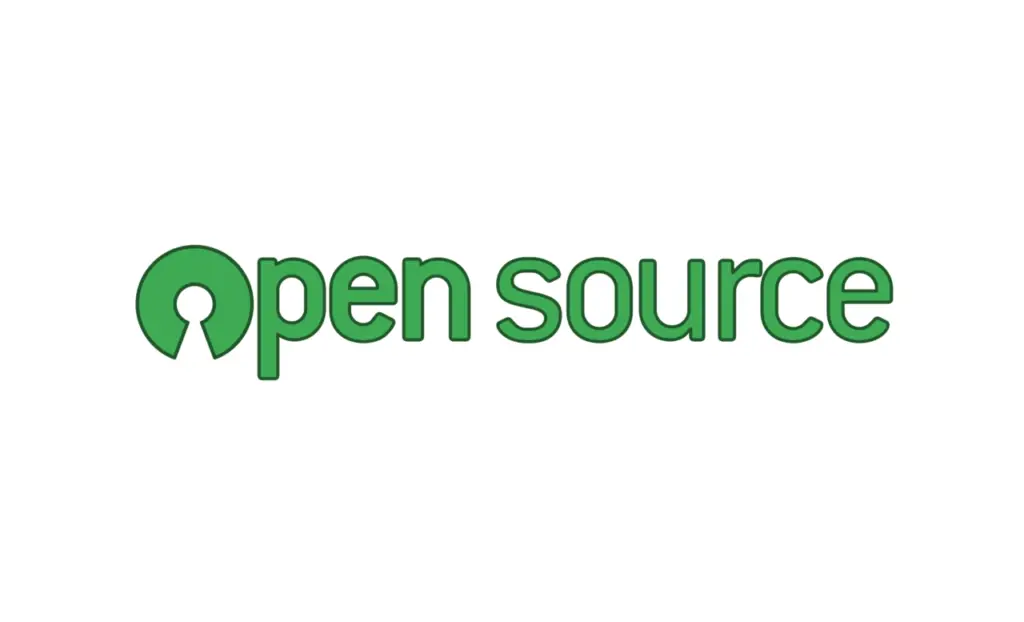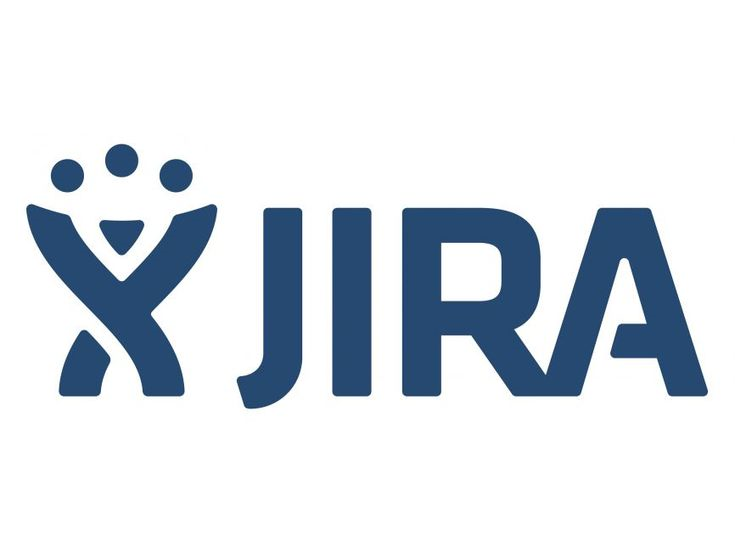A Comprehensive Overview
In the rapidly evolving landscape of technology, one concept has consistently stood out as a driving force for innovation, collaboration, and accessibility: open source. Open source technologies have revolutionized the way software is developed, distributed, and utilized, creating a global community of developers and users who contribute to and benefit from this collaborative model. The idea of open source goes beyond mere software development; it represents a philosophy that emphasizes transparency, community involvement, and the democratization of technology.

Open source technology’s roots can be traced back to the early days of computing, but it wasn’t until the late 20th century that the movement gained significant momentum. The advent of the internet and the collaborative potential it unlocked played a crucial role in this growth. Today, open source technologies are ubiquitous, underpinning everything from operating systems and web servers to complex machine learning frameworks and blockchain technologies.
One of the defining characteristics of open source technology is the accessibility of its source code. Unlike proprietary software, where the source code is closely guarded, open source projects allow anyone to view, modify, and distribute the code. This openness fosters a collaborative environment where developers from around the world can contribute improvements, fix bugs, and innovate on top of existing solutions. The result is a rich ecosystem of software that evolves rapidly, driven by the collective expertise and creativity of a global community.
The benefits of open source technologies are manifold. For businesses, they offer cost savings, flexibility, and the ability to customize solutions to meet specific needs. For developers, open source projects provide valuable learning opportunities, a platform to showcase their skills, and the chance to work on cutting-edge technologies. For society at large, open source promotes the dissemination of knowledge and technological advancement, making high-quality software accessible to all.
In this article, we will delve deeper into the world of open source technologies, exploring their history, key principles, major projects, and the impact they have on various sectors. We will also discuss the challenges faced by the open source community and the future prospects of this dynamic and ever-evolving domain.
The History and Evolution of Open Source
The concept of open source can be traced back to the early days of computing. In the 1950s and 1960s, software was often shared freely among researchers and academics, with source code included. This collaborative spirit fostered significant advancements and set the stage for the open source movement.
However, as the software industry matured, the trend shifted towards proprietary models, where software was developed and sold as a closed, commercial product. The turning point came in the 1980s with the emergence of the Free Software Foundation (FSF) and the GNU Project, led by Richard Stallman. The FSF championed the idea of free software, advocating for users’ freedom to run, modify, and share software.
The term “open source” itself was coined in 1998 as a more business-friendly alternative to “free software.” This rebranding effort, led by the Open Source Initiative (OSI), aimed to promote the practical benefits of open source software to businesses and encourage wider adoption. The OSI established the Open Source Definition, outlining criteria that software must meet to be considered open source.
Key Principles of Open Source
Open source software is defined by a set of principles that ensure its openness and collaborative nature:
- Free Redistribution: The software can be freely distributed to anyone, without restrictions.
- Source Code Availability: The source code must be accessible, allowing users to study, modify, and improve the software.
- Derived Works: Modifications and derived works must be allowed and can be distributed under the same terms as the original software.
- Integrity of the Author’s Source Code: Authors can require that modifications be distributed as patches, ensuring that the original code remains distinguishable.
- No Discrimination: The license must not discriminate against any person or group or restrict the software’s use in any field of endeavor.
- Distribution of License: The rights attached to the software must apply to all to whom the software is redistributed.
- License Must Not Be Specific to a Product: The rights attached to the software must not depend on it being part of a specific software distribution.
- License Must Not Restrict Other Software: The license must not place restrictions on other software that is distributed alongside the licensed software.
Major Open Source Projects and Their Impact
Open source projects span a wide range of domains, each contributing significantly to the technological landscape. Some of the most notable projects include:
1. Linux
Linux is perhaps the most well-known open source project. Started by Linus Torvalds in 1991, Linux is a powerful, flexible, and secure operating system that has become the backbone of many enterprises, data centers, and even mobile devices (through Android). Its open nature allows for extensive customization, making it a preferred choice for a variety of applications.
2. Apache HTTP Server
The Apache HTTP Server, commonly referred to as Apache, is a free and open source web server software. It has played a pivotal role in the growth of the World Wide Web by providing a robust, flexible, and secure platform for serving web content. Apache’s modular architecture and widespread adoption have made it a cornerstone of web hosting.
3. Mozilla Firefox
Mozilla Firefox is an open source web browser that emerged as a popular alternative to proprietary browsers. Launched in 2002 by the Mozilla Foundation, Firefox emphasizes user privacy and security. Its open source nature has encouraged the development of numerous extensions and contributed to its feature-rich ecosystem.

4. MySQL
MySQL is an open source relational database management system that has become a critical component of many web applications. Its performance, reliability, and ease of use have made it a popular choice for developers and businesses alike. MySQL’s open source nature has facilitated its integration into a wide array of applications and platforms.
5. Kubernetes
Kubernetes, originally developed by Google, is an open source platform for automating the deployment, scaling, and management of containerized applications. It has revolutionized the way software is deployed and managed, enabling more efficient and scalable cloud-native applications. Kubernetes’ open ecosystem has spurred a vibrant community of contributors and users.
The Impact of Open Source on Various Sectors
The influence of open source technologies extends across numerous sectors, driving innovation and enabling new possibilities:
1. Education
Open source software has transformed education by providing accessible and affordable tools for learning and research. Platforms like Moodle and Open edX offer flexible and customizable learning management systems, while resources like Wikipedia provide free access to vast amounts of knowledge. Additionally, open source coding platforms such as GitHub serve as valuable learning resources for aspiring developers.
2. Healthcare
In healthcare, open source solutions are being leveraged to improve patient care and streamline operations. Electronic health record (EHR) systems like OpenMRS provide customizable and cost-effective solutions for healthcare providers, especially in resource-limited settings. Open source projects also support medical research by providing tools for data analysis and collaboration.
3. Government
Governments around the world are adopting open source technologies to enhance transparency, reduce costs, and improve public services. Open source platforms enable the development of customized solutions tailored to the specific needs of governmental agencies. Furthermore, the use of open data initiatives promotes transparency and citizen engagement.
4. Business
Businesses benefit from open source technologies through cost savings, flexibility, and innovation. Open source software reduces the need for expensive licensing fees and allows companies to customize solutions to their specific requirements. Additionally, the collaborative nature of open source fosters innovation, enabling businesses to leverage the collective expertise of the global community.
5. Research and Development
Open source tools and platforms play a crucial role in research and development across various fields. Projects like Jupyter Notebooks and R provide researchers with powerful tools for data analysis and visualization. Open source collaboration platforms facilitate the sharing of research findings and the development of new technologies.
Challenges Facing the Open Source Community
Despite the numerous advantages, the open source community faces several challenges that need to be addressed to ensure its continued growth and success:
1. Sustainability
One of the significant challenges is the sustainability of open source projects. Many projects rely on volunteer contributions, which can lead to issues with maintaining and updating the software. Securing funding and support for long-term development is crucial for the sustainability of open source initiatives.
2. Security
While open source software benefits from transparency, it also faces security challenges. The open nature of the code makes it accessible to both benevolent and malicious actors. Ensuring robust security practices and timely updates is essential to protect against vulnerabilities.
3. Governance
Effective governance is necessary to manage the direction and development of open source projects. Clear guidelines and processes for contributions, decision-making, and conflict resolution are vital to maintain a healthy and productive community.
4. Inclusivity
Promoting inclusivity and diversity within the open source community is important for fostering a wide range of perspectives and ideas. Efforts to create welcoming and supportive environments for contributors from diverse backgrounds are essential for the growth and innovation of open source projects.
The Future of Open Source Technologies
The future of open source technologies looks promising, with several trends and developments shaping the landscape:
1. Increased Adoption by Enterprises
As more businesses recognize the benefits of open source, its adoption in enterprise environments is expected to grow. Companies are likely to invest in open source projects and contribute to their development, further driving innovation and collaboration.
2. Advancements in AI and Machine Learning
Open source frameworks like TensorFlow and PyTorch have already made significant contributions to the field of artificial intelligence and machine learning. Continued advancements in these areas will likely lead to the development of new tools and applications that leverage open source technologies.
3. Expansion of Open Source Hardware
The concept of open source is extending beyond software to include hardware. Projects like Arduino and Raspberry Pi are pioneering the open source hardware movement, enabling the creation of affordable and customizable hardware solutions.
4. Collaboration Across Borders
The global nature of the open source community fosters collaboration across geographical and cultural boundaries. This international cooperation will continue to drive innovation and address global challenges through collective problem-solving.

Open source technologies have fundamentally transformed the way software is developed, distributed, and utilized. By embracing principles of transparency, collaboration, and accessibility, open source projects have created a dynamic and innovative ecosystem that benefits businesses, developers, and society as a whole. Despite challenges, the open source community continues to thrive, driven by a shared commitment to advancing technology for the greater good.
As we look to the future, the potential of open source technologies remains boundless. Continued collaboration, innovation, and inclusivity will ensure that open source remains a powerful force for technological advancement and a catalyst for positive change in the world. Whether through contributing to existing projects or initiating new ones, individuals and organizations alike have the opportunity to be part of this transformative movement, shaping the future of technology in ways that are open, transparent, and inclusive.





Hi! Do you use Twitter? I’d like to follow you if that would be ok. I’m definitely enjoying your blog and look forward to new updates.
yes – https://x.com/LearnxyzIn . All social links at the bottom of the main page
I came across your site wanting to learn more and you did not disappoint. Keep up the terrific work, and just so you know, I have bookmarked your page to stay in the loop of your future posts. Here is mine at QN5 about Airport Transfer. Have a wonderful day!